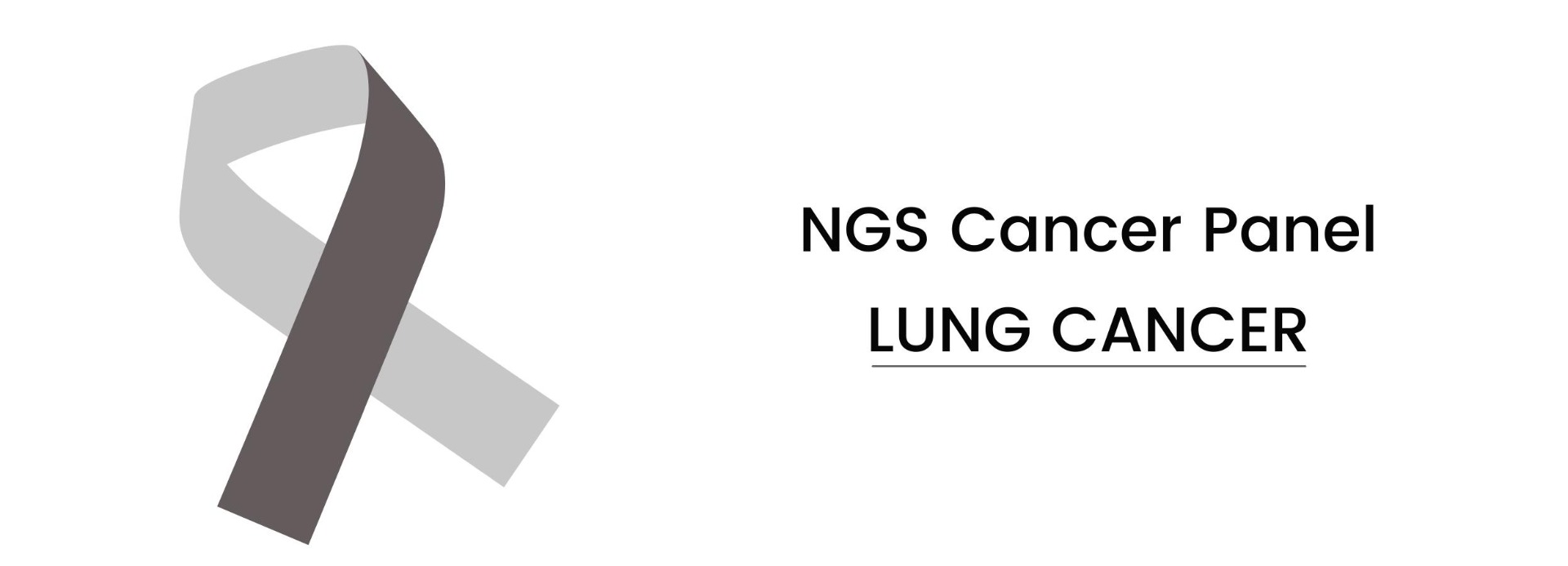
Lung Cancer
What is DNA OncoNex ?
Lung cancer is the leading cause of global cancer incidence and mortality, accounting for an estimated 2 million diagnoses and 1.8 million deaths 1
DNAOncoNex is a comprehensive targeted Next Generation Sequencing (NGS) assay for 100 genes associated with lung cancers. NGS assay offers identification of numerous novel genetic aberrations and associated potential therapeutic targets in many cancers.
- Offers insights into the molecular underpinnings of the associated tumour mutation genes.
- With targeted therapies becoming the new standard of care in oncology, this NGS-driven diagnostics approach provides the choice of therapy to optimize patient outcomes in the future.
Why NGS for Lung Cancer ?
NSCLC accounts for more than 80% of all lung cancer cases and includes non-squamous cell carcinoma- large-cell carcinoma and adenocarcinoma, and squamous cell carcinoma.
For diagnosis, lung cancers are classified into two main histological types - small cell lung cancer ( SCLC ) and non-small cell lung cancer (NSCLC), that are based on the appearance of the neoplastic cells under a microscope.
- Molecular biomarker testing of NSCLC is considered standard of care and part of the diagnostic algorithm to identify subsets of patients for molecular-targeted treatment.
- Epidermal growth factor receptor (EGFR) - activating mutations, one of the most commonly mutated genes in NSCLC, are harboured by up to 15% of lung adenocarcinoma and less than 5% of squamous cell carcinomas (SCC).
- NGS enables massively parallel sequencing for a large number of genes with accurate reads while being relatively inexpensive.
Clinical Utility
- Identify Driver Mutations - mutation in the DNA Sequence that cause cells to become cancers , grow & spread in body
- Drug profiling for Chemotherapy & Targeted Drugs
- Predictive genomic biomarker identification to guide the therapeutic process
- The targeted NGS panel offers wide coverage and in-depth analysis to detect the known and novel variants
- The multigene approach reduces the time for diagnosis providing a more economical solution.
Mapmygenome Offerings
- Major emphasis on ~100 cancer genes associated to Lung Cancer.
- Screening for clinically significant genes based on National Comprehensive Cancer Network (NCCN) guidelines.
- Genetic counselling to guide through the report and discuss the available management & treatment options in case of clinical findings.
- Reporting - Pathogenic and Likely Pathogenic Variants are reported following the ACMG recommended guidelines.
- Best in class Bioinformatics pipeline for the most accurate analysis by our experienced Bioinformatics team.
Test specifications
| Technique | Coverage | Variant types | TAT | Sample requirements |
|---|---|---|---|---|
| NGS | 800 - 1000X | SNV | 3 - 4 weeks | FFPE (Formalin-Fixed Paraffin-Embedded) Sample - Somatic cases, Blood Sample - Germline cases |
References
- Thandra, Krishna Chaitanya et al. “Epidemiology of lung cancer.” Contemporary oncology (Poznan, Poland) vol. 25,1 (2021): 45-52. doi:10.5114/wo.2021.103829
Write Your Own Review
